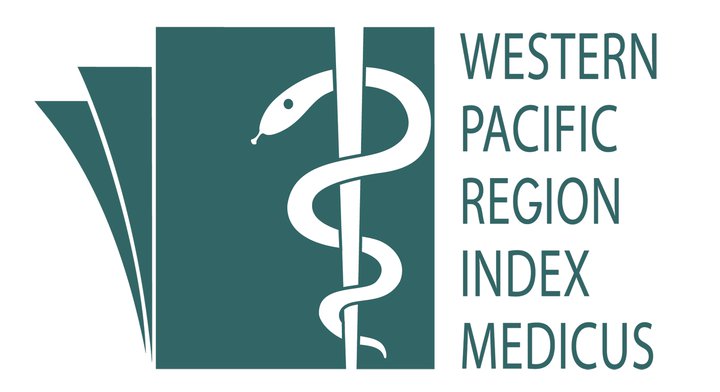Assessment of Knowledge and Practices about Menstrual Health among Adolescent Girls of an Urban Slum in Mumbai
Keywords:
Adolescents - Menstruation - Reproductive health - Menstrual hygiene.Abstract
Introduction
Adolescence is a critical period of life marked by biological, social and psychological changes for an individual.
Objective The objective of the study was to assess the knowledge and practices of adolescent girls pertaining to menstruation in an urban slum.
Methods
A cross-sectional descriptive study of three months duration (January 2011 to March 2011) was conducted in an urban slum of Mumbai. All adolescent girls from 10-19 years of age, who had attained menarche, attending general out-patient department and STI clinic, were included. The total sample size of the study was 241. After taking the informed consent of the study respondents, participants were interviewed using a semi-structured questionnaire. The questionnaire comprised of eliciting information pertaining to the socio-demographic profile and reproductive health i.e. hygiene during menstrual periods, awareness about HIV/AIDS of the participants. Special care was taken to maintain privacy and confidentiality. Data entry and statistical analysis were done using SPSS version 17. Frequency distributions were calculated for all the variables and chi-square test was used to study the association between socio-demographic parameters and knowledge and practices about menstruation.
Results
It was observed that 79(32.8%) subjects had unsatisfactory menstrual hygienic practices. Even though 66% of adolescent girls were aware about the different modes of transmission of HIV, only 19% knew about safe sexual practices. Education status and late adolescent age group (15-19 years) had a statistically significantly association with adolescent girls knowledge about menstruation. Good/fair knowledge and education status was found to be significantly associated with good practices during menstruation.
Conclusions
Study findings have revealed that education status of the adolescent girls was the most important determinant for having good menstrual knowledge. Also significant association was observed between education level and healthy menstrual practices. Thus steps should be taken to improve the literacy status of the adolescent girls for bringing about further improvements in the menstrual hygiene related knowledge and practices.
Â
Â
References
Adolescent Reproductive and Sexual Health (ARSH) Strategy under NRHM / RCH-II. Available from: http://www.mohfw.nic.in/NRHM/ARSH.htm.
Karim AM, Magnani RJ, Morgan GT, Bond KC. Reproductive health risk and protective factors among unmarried youth in Ghana. International Family Planning Perspectives. 2003; 29(1):14-24.
Dasgupta A, Sarkar M. Menstrual Hygiene: How Hygienic is the Adolescent Girl? Indian J Community Med. 2008; 33(2):77-80.
Sumpter C, Torondel B. A systematic review of the health and social effects of menstrual hygiene management. PLoS One. 2013; 8(4):e62004.
Bhatti LI, Fikree FF. Health-seeking behavior of Karachi women with reproductive tract infections. Soc Sci Med. 2002; 54(1):105-17.
Sweet RL. Gynecologic conditions and bacterial vaginosis: implications for the non-pregnant patient. Infect Dis Obstet Gynecol. 2000; 8(3-4):184-190.
Kennedy E, Gray N, Azzopardi P, Creati M. Adolescent fertility and family planning in East Asia and the Pacific: a review of DHS reports. Reprod Health. 2011; 8:11.
Gupta J, Gupta H. Adolescents and menstruation. The Journal of Family Welfare. 2001; 47(1): 1-12.
Khanna A, Goyal RS, Bhawsar R. Menstrual practices and reproductive problems: A study of adolescent girls in Rajasthan. J Health Management. 2005; 5(7): 91-107.
Jogdand K, Yerpude P. 2011. A community based study on menstrual hygiene among adolescent girls. Indian Journal of Maternal and Child Health. Vol 13(3):1-5.
Omidvar S, Begum K. Factors influencing hygienic practices during menses among girls from south India- A cross sectional study. International Journal of Collaborative Research on Internal Medicine & Public Health.2010; 2(12): 411-423.
Adinma ED, Adinma JI. 2008. Perceptions and practices on menstruation amongst Nigerian secondary school girls. Afr J Reprod Health. 2008; 12(1): 74-83.
Mudey AB, Kesharwani N, Mudey GA, Goyal RC. A cross-sectional study on awareness regarding safe and hygienic practices amongst school going adolescent girls in rural area of Wardha district, India. Global Journal of Health Science. 2010; 2(2):225-231.
Balamurugan SS, Bendigeri ND. Community-based study of reproductive tract infections among women of the reproductive age group in the urban health training centre area in Hubli, Karnataka. Indian J Community Med. 2010; 37(1):34-38.
McMahon SA, Winch PJ, Caruso BA, Obure AF, Ogutu EA, Ochari IA, et al. 'The girl with her period is the one to hang her head' Reflections on menstrual management among schoolgirls in rural Kenya. BMC Int Health Hum Rights. 2011; 11:7.
Morison L, Ekpo G, West B, Demba E, Mayaud P, Coleman R, et al. Bacterial vaginosis in relation to menstrual cycle, menstrual protection method, and sexual intercourse in rural Gambian women. Sex Transm Infect. 2005; 81(3): 242-247.
Nair P, Grover VL, Kannan AT. 2010. Awareness and practices of menstruation and pubertal changes amongst unmarried female adolescents in a rural area of East Delhi. Indian J Community Med. 2010; 32(2):156-157.
Sommer M. Where the education system and women's bodies collide: The social and health impact of girls' experiences of menstruation and schooling in Tanzania. J Adolesc. 2010; 33(4): 521–529.
Posner J, Kayastha P, Davis D, Limoges J, O'Donnell C, Yue K. Development of leadership self-efficacy and collective efficacy: adolescent girls across castes as peer educators in Nepal. Glob Public Health. 2009; 4(3):284-302.
Downloads
Additional Files
Published
How to Cite
Issue
Section
License
IJPHR applies the Creative Commons Attribution (CC BY) license to articles and other works we publish. If you submit your paper for publication by IJPHR, you agree to have the CC BY license applied to your work. Under this Open Access license, you as the author agree that anyone can reuse your article in whole or part for any purpose, for free, even for commercial purposes. Anyone may copy, distribute, or reuse the content as long as the author and original source are properly cited. This facilitates freedom in re-use and also ensures that IJPHR content can be mined without barriers for the needs of research.






